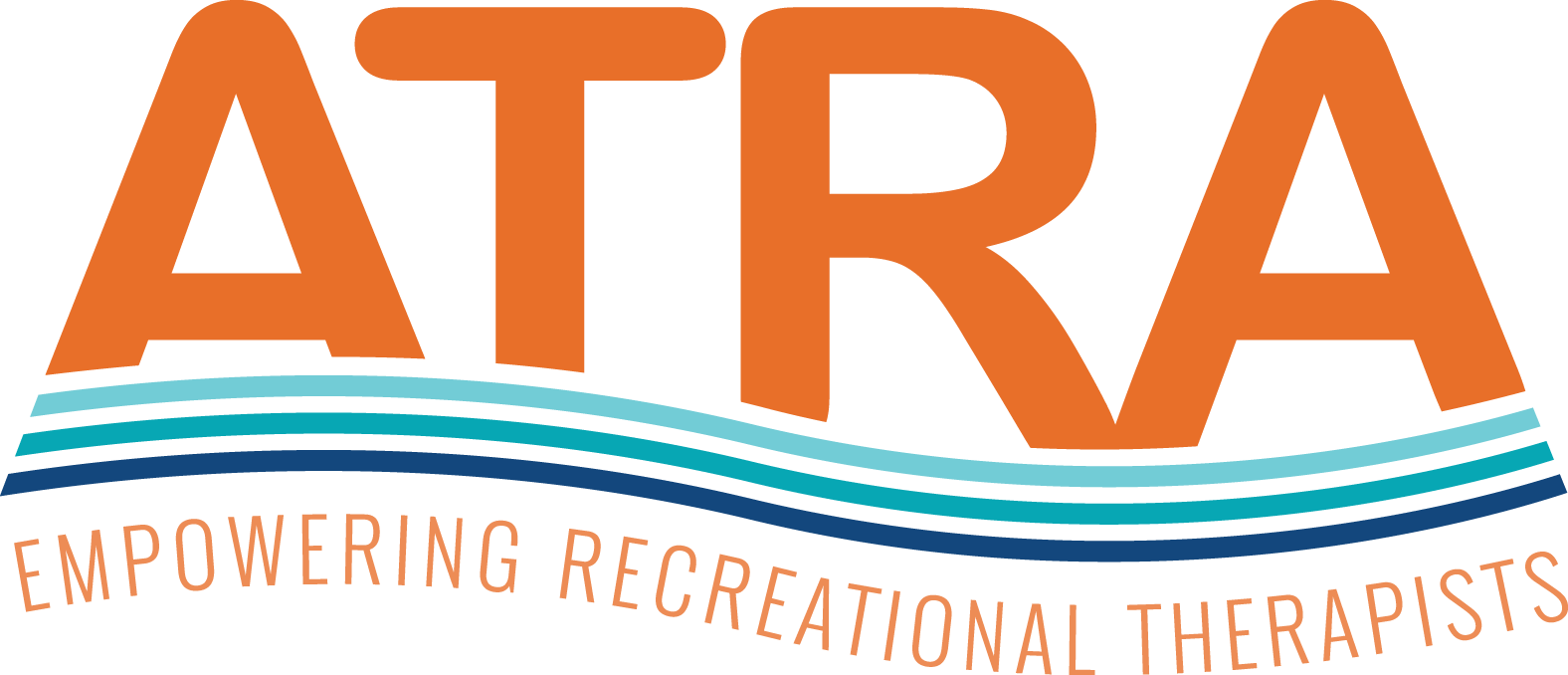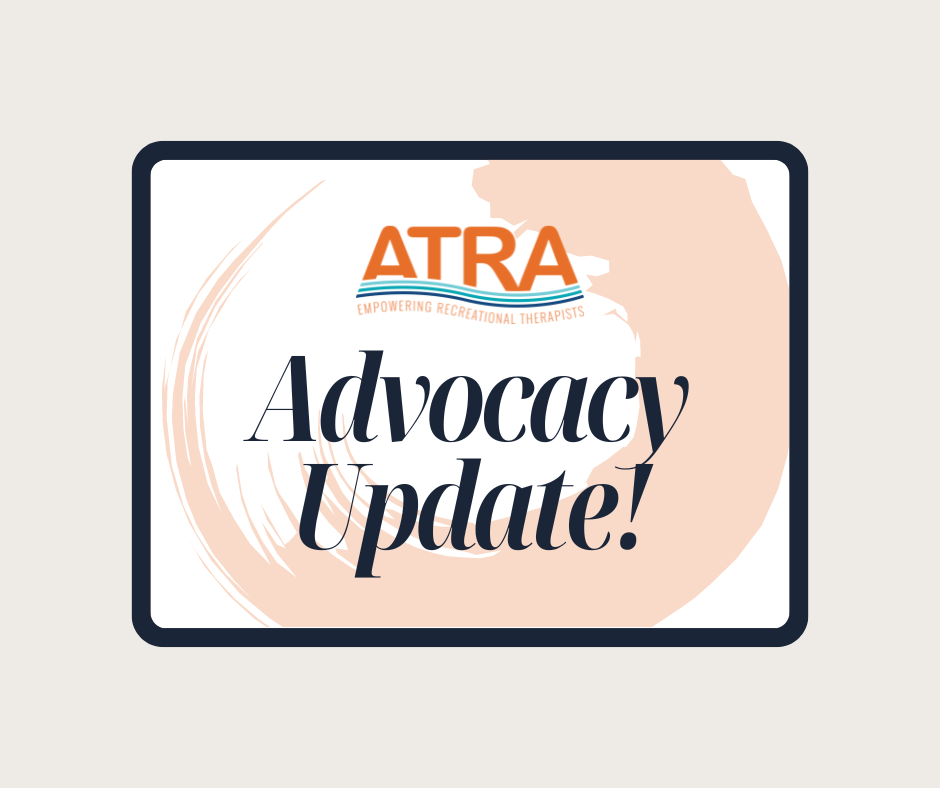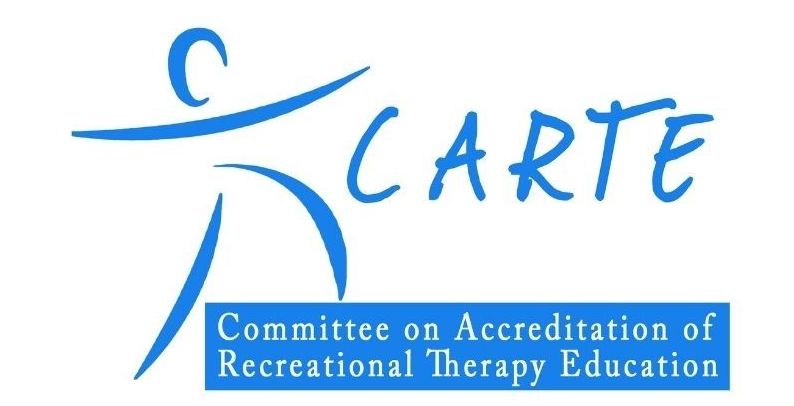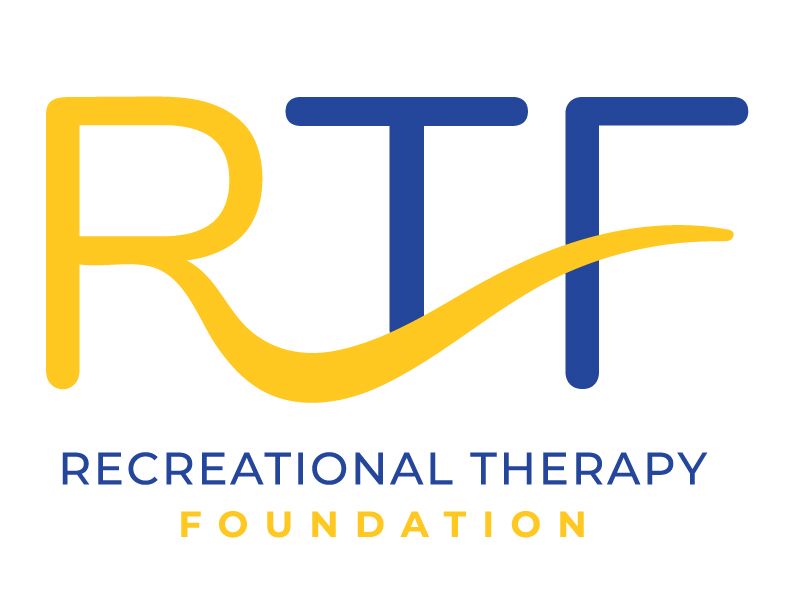ATRA SUBMITS COMMENTS ON LONG-TERM CARE DISCUSSION DRAFT
Through it's membership with the Consortium for Citizens with Disabilities, ATRA Submitted the
following comments are submitted in response to the discussion draft The Medicare Long-Term Care Services and Supports Act, released on May 2, 2018. We appreciate the opportunity to submit comments and appreciate your leadership on the issue of long-term care, and acknowledgment of this extremely important topic for people with disabilities.
The Consortium for Citizens with Disabilities (CCD) is the largest coalition of national organizations working together to advocate for federal public policy that ensures the self-determination, independence, empowerment, integration and inclusion of children and adults with disabilities in all aspects of society. Since its creation, CCD has advocated for expanding access to long term services and supports (LTSS) and has played a crucial role in the creation of federal programs expanding access to home and community-based services (HCBS). Most recently, in 2016, after a series of reports were released on the topic, CCD released this statement outlining our principles for comprehensive long-term services and supports (LTSS) finance reform.
The problem is clear: while our nation is aging and people are living longer with disabilities and chronic conditions, we lack a coherent plan on how to provide for their care and supports. Our current financing system relies almost entirely on Medicaid and unpaid family caregivers, both of which disincentivize family financial planning; hinder the economic opportunities of women, people of color, and people with disabilities; and often force people and families into financial devastation to get the services they need. We are delighted that you have recognized this important issue and The Medicare Long-Term Care Services and Supports Act provides the framework for one of the many important steps to address the long-term care crisis that faces the Nation.
There are some concerns and questions we have about the discussion draft, and suggestions that we have in response to your request for additional ideas for a holistic approach to long-term care.
Detailed Concerns and Questions regarding The Medicare Long-Term Care Services and Supports Act Discussion Draft:
Benefit: How this benefit would interact with other Federal programs will need to be clarified. In particular, interactions between the benefit and Medicaid Managed Care and Medicare Advantage must be clarified in statute, not delegated to the Secretary. In addition, we believe that page 26, lines 15 and 16 contain a typographical error with regard to the amount of the benefit retained by the individual when enrolled in a PACE program. We believe that amount was meant to be 5%, consistent with individuals in institutional settings. We detail additional considerations regarding the Medicaid program below. Nonetheless, we strongly believe that the overall flexibility of the benefit is positive.
Assessment: It is very important that more is done to build out the assessment process. The assessment of eligibility should be done in a consistent and uniform way, capturing all individuals with disabilities (including, specifically, people with developmental and mental health disabilities who are often omitted in such assessments). CCD is happy to advise on how to best approach this.
Eligibility: Eligibility determinations should be made outside of existing systems. We are pleased to see that the legislation considers functional eligibility broadly, as evidenced by the definition of a Qualified Individual on page 4. We stress the need for an assessment and eligibility process which is fully inclusive of individuals with a wide range of developmental and mental health disabilities, including those whose functional impairments mainly impact Instrumental Activities of Daily Living. We believe this would be further strengthened by replacing the “such-as” on line 12 with “including.”
The language should also clarify that amounts included in an individual’s ABLE account, health savings accounts, etc. are also disregarded for purposes of determining eligibility for this benefit.
Miscellaneous concerns: The 3-month rollover period noted on page 12 line 19 should be modified to 1 year, to better reflect that reality that some disability-related purchases may require a long period of saving.
Finally, throughout the bill, instances of the phrase “mental retardation,” such as in references to Intermediate Care Facilities for the Mentally Retarded, should be replaced by “intellectual disabilities,” consistent with Rosa’s Law.
In the assessment and eligibility components of the bill there is a real risk of missing small subpopulations of individuals who are currently not part of many state or federal LTSS programs. This includes individuals with developmental disabilities, who don’t qualify for SSI but have not worked enough quarters to be classified as “working disabled”, the mental health community, individuals with dual-diagnoses, and low-income populations who do not qualify for Medicaid, such as immigrants who have not met permanent residency requirements. From a scoring perspective, these populations are relatively small, but CCD views their inclusion as an absolute necessity.
2 year waiting period: A two-year waiting period for this critical benefit will leave many lower to middle income persons in their current state, without any options. This could force people into financial devastation faster. Or, if they’re unable to afford the services and supports they need, people may forego services altogether—which could negatively impact their employment, health and independence. In addition, many people with disabilities require LTSS in order to work--so a waiting period prevents them from receiving the very services they need in order to work and earn their way onto the program, thus ensuring that they instead must fall back onto SSI, Medicaid, and a larger and often more expensive network of federally funded services. Therefore, CCD opposes having a waiting period for this benefit. If, however, a waiting period is included, CCD recommends that the length vary based on an individual’s income and resources and be as minimal as possible for those with the greatest financial need. Moreover, if the purpose of a waiting period is to encourage individuals to take personal responsibility and plan for LTSS needs (i.e. purchase private LTSS insurance), it is important to acknowledge and address the critical issue that individuals with pre-existing health conditions are increasingly precluded from purchasing such products.
Alignment of HCBS: It is important that any setting where the benefit is being used aligns with existing Federal and state programs and regulations, including the Home and Community Based Settings Rule. It is critical that alignment with the HCBS final rule be explicitly included in the legislation itself. We recommend striking “or in the community of the individual’s choice” from lines 16 & 17 on page 9, and “in another residential or community setting of their choice in the community” from lines 20-22 on page 21, and specifying that settings must be in compliance with the Home and Community Based Services (HCBS) Final Rule published on January 16, 2014 (79 Fed. Reg. 2947)) (referred to as the ‘HCBS final rule’).
Additional Ideas for a Holistic Approach to Long-Term Care
We are particularly supportive of The Medicare Long-Term Care Services and Supports Act because it expands access to LTSS in the Medicare program, which has historically had extremely limited coverage of these crucial services for both older adults and people with disabilities. That said, many people with disabilities require lifelong LTSS and CCD believes that all health insurance benefit packages should cover needed LTSS for individuals with disabilities. We will also note that the benefit coverage is insufficient for people with substantial LTSS needs. Long-term care reform should broadly expand access to LTSS, including for people with substantial LTSS needs, and The Medicare Long-Term Care Services and Supports Act is only part of the solution.
As Congress considers this bill, CCD would highlight our strong support for elements of this bill that could be adopted into other LTSS expansions:
It addresses the needs of and provides an avenue to LTSS for individuals with disabilities who are under 65 as well as older adults—we believe that any LTSS bill should address the needs of both populations.
The cash and counseling benefit model included in the bill—as it continues the push towards self-direction and autonomy, long supported by the disability community. There are many examples of programs where this model has worked for people with disabilities and the aging population, and CCD believes that this is a better approach than attempting to create a benefit package of specific proscribed services for the wide array of individuals who will be eligible for this benefit.
We would also urge Congress to considering the following issues: related to the existing LTSS infrastructure in Medicaid:
Challenges Accessing LTSS via Medicaid: Medicaid currently funds the majority of LTSS provided in the U.S. While Medicaid is a crucial safety net, there remains insufficient access to the LTSS of which Medicaid is often the only provider. Strict income and asset limits force people with disabilities into a catch-22 between their LTSS needs and their economic growth opportunities, thwart family financial planning, and hinder independence and employment.
Medicaid’s income and asset limits for people with disabilities and seniors are so low that earning or saving just over the limit still leaves an individual vastly below the kind of income or asset level that would allow an individual to pay out of pocket for LTSS. Strict asset limits further prevent people with disabilities from saving for their own retirement. For families and individuals who rely on Medicaid LTSS, leaving Medicaid isn’t an option. Some can figure out ways to structure funds to maintain LTSS access; most simply live in poverty. We strongly urge you to consider how to expand access to LTSS for people who would normally rely on Medicaid.
Streamlining and Reducing Institutional Bias: Medicaid also has an institutional bias that limits access to cost effective home and community-based services (HCBS). It is important that alongside this bill there are additional efforts to streamline all Medicaid HCBS authorities into a State Plan Option, continuing the enhanced federal match for these services; to expand the Medicaid Buy-In by creating a single national LTSS-only Medicaid buy-in program for workers with disabilities, similar to the Enhanced Medicaid Buy-In included in the Bipartisan Policy Center report; and to reverse the institutional bias in Medicaid to provide community-based services on an equal footing with institutional services. Equal access to HCBS is particularly important since Medicaid nursing home coverage is mandatory, while HCBS coverage is optional.
Moreover, as currently drafted, states receive different percentages of the of the Medicare Part E benefit based on setting and program (i.e. different amounts for HCBS, PACE, and institutional settings). This uneven distribution could result in unintentional consequences and an “institutional bias” since states would receive more benefit for institutional placements.
One way to incentivize these kinds of reforms would be to incorporate such streamlining as condition of The Medicare Long-Term Care Services and Supports Act. A state’s ability to receive a portion of an individual’s benefit could be tied to that state’s adoption of these proposals, as well as to the state meeting certain rebalancing targets. Furthermore, no state could be able to receive any portion of an individual’s benefit if the services provided to the individual by the state is less than the amount of services provided by the benefit.
Taken together, these proposals could ease state paperwork burden in providing HCBS, encourage more states to provide more HCBS, and allow more people with disabilities to work, earn, and save for the future. In addition to expanding current economic opportunity, a national LTSS-only Medicaid Buy-In Program should be seen not only as a work program, but also as a retirement savings mechanism by which people with disabilities have the freedom to save for their own retirement. Reversing the institutional bias achieves a long-term disability community objective of providing HCBS without waiting lists to all eligible people with disabilities.
Thank you again for your leadership on this issue. This is an important step, the first of many that our country must take so that people with disabilities and others have access to the LTSS they need to stay healthy and independent.





